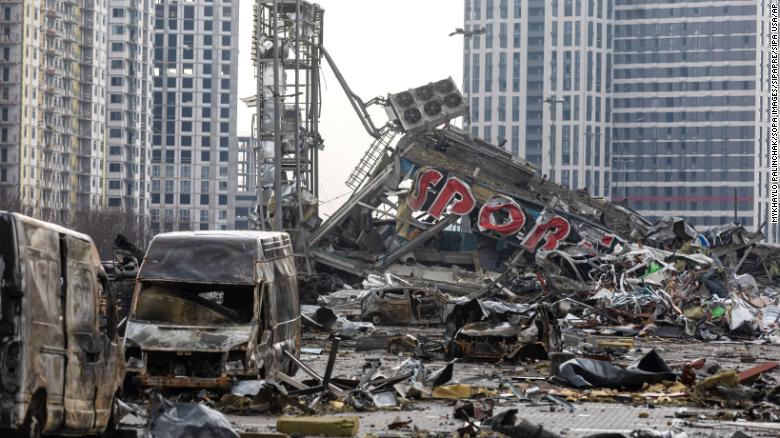
Hong Kong (CNN Business) – Ukraine could lose almost half of its economy this year as a result of Russia’s invasion, according to the World Bank.
In a report published Sunday, the bank estimated that the country’s GDP could decline by 45.1% this year, although it noted that “the magnitude of the contraction will depend on the duration and intensity of the war.”
Since the incursion began, vast swathes of Ukraine’s infrastructure have been devastated, with many bridges and neighborhoods damaged or destroyed. Some areas, including ports, have been hit by blockades, while farmland around the country has been turned into battlefields.
Ukraine was a major exporter of wheat and sunflower oil before the war, and this year’s planting season is being disrupted by fighting. Farmers also face difficulty accessing machinery and other essential products that would typically arrive through Black Sea ports.
Russia’s economy has already fallen into recession, with economic output expected to drop by 11.2% this year, the World Bank estimates.
Emerging markets in eastern Europe and central Asia are also expected to be hit hard, with countries including Belarus, Moldova and Tajikistan expected to plunge into recession this year.
“The magnitude of the humanitarian crisis unleashed by the war is staggering. The Russian invasion is delivering a massive blow to Ukraine’s economy and it has inflicted enormous damage to infrastructure,” Anna Bjerde, the World Bank’s vice president for the Europe and Central Asia region, said in a statement.
“Ukraine needs massive financial support immediately as it struggles to keep its economy going and the government running to support Ukrainian citizens who are suffering and coping with an extreme situation.”
Ukraine Finance Minister Serhii Marchenko has emphasized that the government is still functioning, despite the war.
But in a recent interview, he told CNN’s Julia Chatterley that about a third of his country’s economy was no longer functioning as the atrocities continued and millions of people fled as refugees into neighboring countries.
As of late March, roughly 3 million people had lost their jobs, and preliminary estimates suggested that the economy may have already lost approximately $565 billion, Marchenko added, noting the massive destruction of Ukrainian infrastructure.
To keep the economy afloat, the government has leaned on war bonds, as well as less traditional avenues, such as fundraising in cryptocurrencies and the sale of non-fungible tokens (NFTs).
“I think that the true figures [of total economic loss] would be clear only after the war,” he said.
“The [best] scenario is to end the war is as quickly as possible.”




